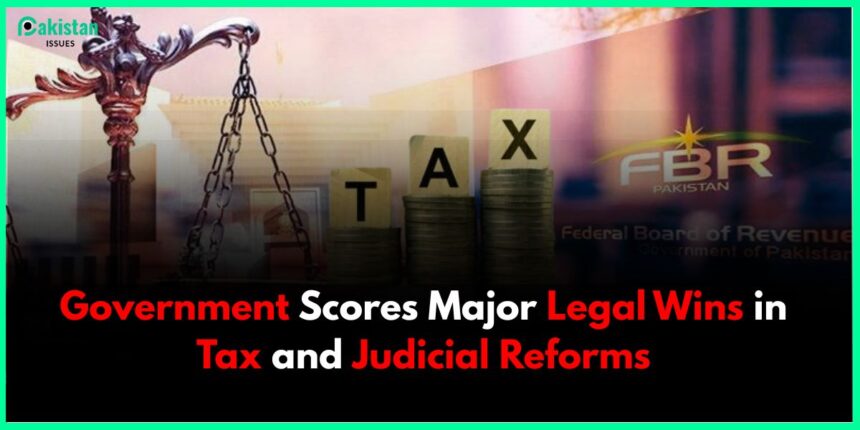The authorities in Pakistan have recently experienced some notable legal victories, resulting in a position of relative strength, both in terms of both financial and institutional. The two events have one key feature in common: the federal board of revenue (FBR) recovers billions in tax recoveries and the Islamabad High Court vacates long fixes stays against significant matters, combined they present an evolving feature of the legal landscape, as it provides increased revenue for the government and supports the government in the pursuance of the economic reform commitments.
FBR Reclaims Rs36.14 Billion
In early June, the FBR secured major wins in court, reclaiming Rs36.14 billion in previously disputed tax revenues. The most notable success concerned a multi-year case against Bahria Town, where the authority was cleared to collect Rs26.446 billion. Two other rulings added Rs9.7 billion more in corporate tax recoveries.
These verdicts were given upon the specific direction of Prime Minister Shehbaz Sharif to FBR, to be “active” in litigation and recover outstanding dues. Officials stated there is a clear message here, the government means business as it relates to economic discipline and tax justice.
Islamabad High Court Unblocks Rs600 Billion in Tax Litigation
The IHC then followed suit, lifting stay orders in 270 tax-related cases, unlocking frozen claims totaling around Rs600 billion. That figure includes Rs424 billion from 173 cases, Rs150 billion from 94 others, and an additional Rs36 billion from three high-profile disputes.
These decisions eliminate legal obstacles that have left competing tax claims mired in a quasi-legal limbo—some for decades—thus strengthening the government’s ability to pursue and stabilise its finances while under the gun of the IMF and in a precarious domestic economy.
What This Means for the Governance Agenda
- Strengthening institutional authority: The twin victories empower the FBR as a central revenue collector and affirm the government’s resolve to uphold civil service and rule of law.
- Fiscal responsibility in practice: With a recovering tax base, the government gains wiggle room to manage its deficit and justify ongoing austerity.
- Reform momentum: These court wins set a tone for broader reform packages—digital tax systems, anti-evasion operations, and more effective governance architecture.
Broader Implications
Although these developments are economically beneficial, they are not without their concerns. Analysts have pointed out that:
- The aggressive play in collecting taxes could leave little room for actual resolution of disputes, thereby undermining investor confidence in the tax regime.
- Political analysts criticize the use of the courts to render government policy, as it violates the independence of the judicial system.
- While changes are being made, the government seems committed to balancing—enjoying the legal power while not undermining rights and due process.
Final Take
The recent legal gains—regaining Rs36 billion via court order and unlocking Rs600 billion from frozen claims—are landmark wins for state revenue and credibility. For Prime Minister Shehbaz Sharif’s team, these victories reinforce the message: Pakistan is willing to pursue fiscal accountability and economic reforms seriously. Now comes the next challenge—translating court wins into sustained growth, stability, and public trust.










